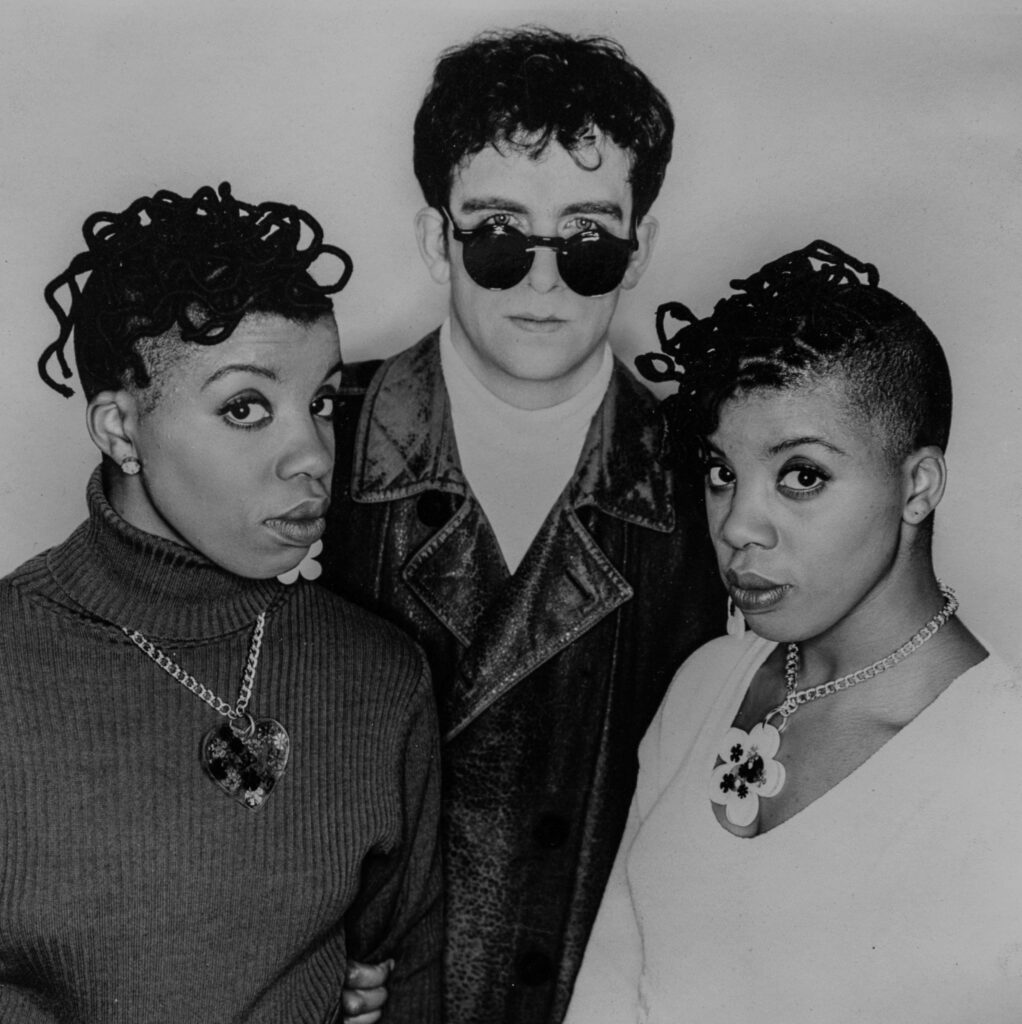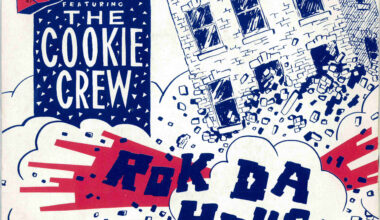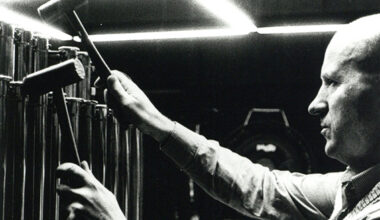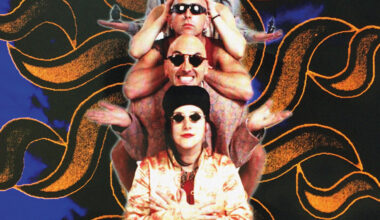Soho’s Timothy London reflects on their 1990 hit, ‘Hippychick’, which fuses the central riff from The Smiths’ ‘How Soon Is Now?’ to a Soul II Soul beat

“It starts with Bo Diddley. He bought a tremolo machine, which was mainly used for pianos, but he used it on the guitar and released ‘Bo Diddley’. In 1958, that was absolutely brand-new. It had a regular pulse that wasn’t driven by the drums, but by the guitar. He electrified the beat.
“In 1984, when The Smiths recorded ‘How Soon Is Now?’, Johnny Marr is in the studio and comes up with a riff similar to ‘Hey Mona’, another Bo Diddley thing. He realises it’s hard to get the tremolo playing in a constant rhythm. Presumably they sampled the guitar in little sections, then spun it back in again. So you had this riff that pulses along and these lumpy rock drums – they don’t want to make you dance, but the riff does. I think that’s a lot of the reason people love that song – this weird tension between the unfunky drum part and the guitar.
“Fast-forward to 1987, and we were in a world of London toilet venues, where most of the groups were goth or Smiths-influenced. That sample came into our set because Nigel Lackey, one of the original members, had a tiny sampler which he’d play to wind up the Smiths fans. They’d recognise the riff, and there’d be a big cheer, then we’d do one of our own songs, which wouldn’t go down as well. It was a bit of a ‘fuck you’ to the situation, as we felt we were technologically more forward and the Smiths thing was backwards-looking. I was very arrogant in those days and thought it was really funny.
“We had that sample hanging about for a couple of years. Then Soul II Soul appeared. They nicked that fantastic breakbeat from Graham Central Station, and totally owned it. Nigel was messing about one day, and started doing the Soul II Soul beat underneath The Smiths. We thought it sounded really good. I had a blues song called ‘Hippychick’ already written, which fitted easily over the top.
“The story is of a young woman arrested at a demonstration by her policeman ex-boyfriend. People really didn’t get it. The kind who’d notice the reference to the miners’ strike did, but generally speaking it wasn’t thought of as a political song. I don’t think even we realised how political it was. We had other songs which bigged-up Red Action – the element of the Socialist Workers Party who’d fight fascists in the street – so ‘Hippychick’ seemed quite mild.
“We recorded it in the studio of Leigh Gorman – who used to be Bow Wow Wow’s bass player – above his dad’s wood shop. His dad was a carpenter, so we’d to wait while the wood lathes were working. What we were trying to do with the ‘Goddess’ album was to get the feel of a sampled drum break, but with our own sound. So we had the Soul II Soul beat, programmed with MIDI, with sampled individual drums – a kick drum, a snare and hats. We had the Johnny Marr sample – it’s a live guitar over the top – plus we were sampling my guitar and sequencing the feedback.
“Jacqui and Pauline Cuff’s vocals were recorded with a PZM mic – just a cheap pick-up on a piece of metal. Jacqui added the ‘Hip, hip, hip’ bit to the chorus, which is probably the reason it was a hit! It was done very quickly and very simply. The label were keen to get remixers involved – at that time, it was fashionable to do lots of versions.
“A DJ called Graham Dove threw some breakbeats into the mix so the Soul II Soul beat wasn’t quite so rigid. One was percussion, one was similar to the Soul II Soul rhythm, and another had a bit of a bassline on it. That blended with the two-note bassline we already had. It made it a bit more funky.
“We then did a remix ourselves, where by accident there was a sample of Najma Akhtar, a singer with a beautiful, pure voice. She’d just had her first album out and I’d put a bit into the sampler for use at some point. When we started playing the MIDI program, every part of that began playing Najma. It sounded bonkers, very psychedelic. We put the beat under it, and had an instrumental.
“That started doing business on the rave scene. It went off to the Balearic Islands, and around the clubs. We hit Number One on the dance charts, and thought that was that. But 10 copies had been sent to specialist stations in the US. A DJ on a Top 40 station in Houston played it, and got a great reaction. Eventually it got playlisted, and from there it hopscotched across the States. We supported Jesus Jones on a tour, then did our own.
“We had this constant thing all the way – they couldn’t believe Jacqui and Pauline were the singers! They assumed the singers would be white girls, as they don’t sound particularly ‘black’ on the track.
“And they didn’t get the cultural references. They didn’t understand what the miners’ strike was. They’d never heard of an incident room. They just liked it because it was a bouncy, jolly song. When it started happening in the States, it was re-released on the back of our success there.
“All three of us are still very proud of it. I’m most proud of the fact that all the elements which made it so unlikely are also the elements that made it a hit. There aren’t many hits which have that kind of progress, from such a weird beginning. If you add in the other stuff – the fact that we were a mixed group, the fact that it was a political song – that makes it even more interesting.
“The most important thing for me is the connection with Bo Diddley, because he was never given the groundbreaking status that he should have had. I saw him once at Dingwalls in the 1980s in front of a crowd of about 100, and he was still really good. The man was a fucking legend and deserved so much more. He should have retired rich, and shouldn’t have had to play Dingwalls!”
For more, visit soho.bandcamp.com





